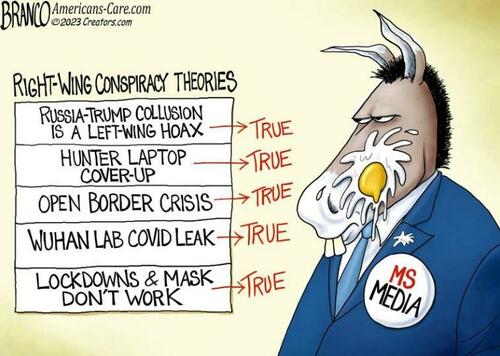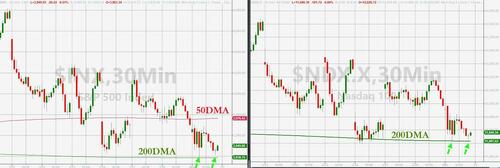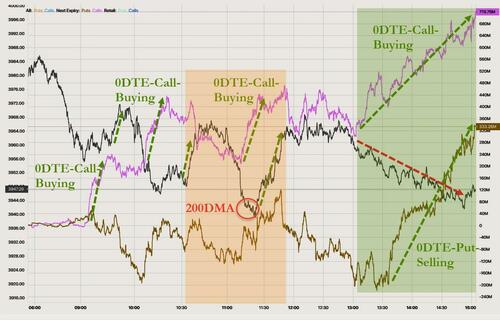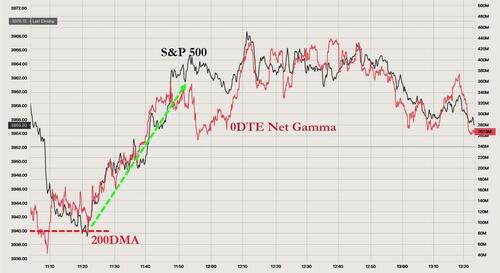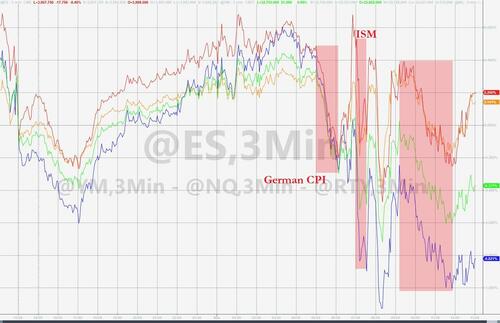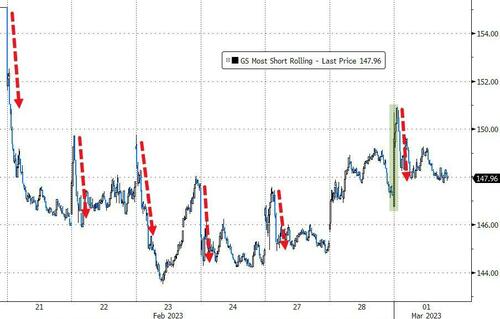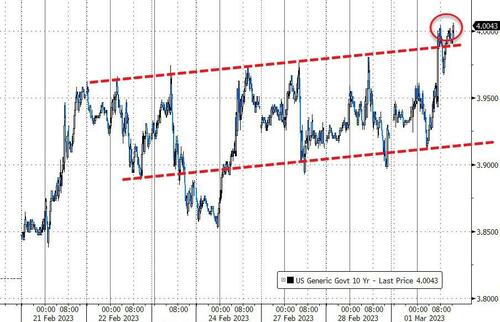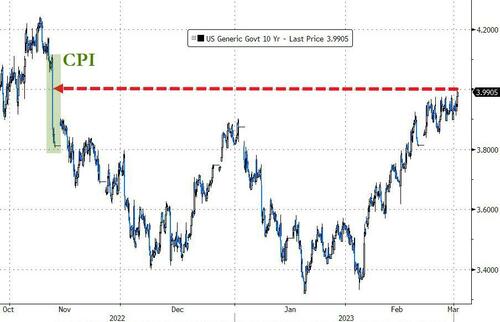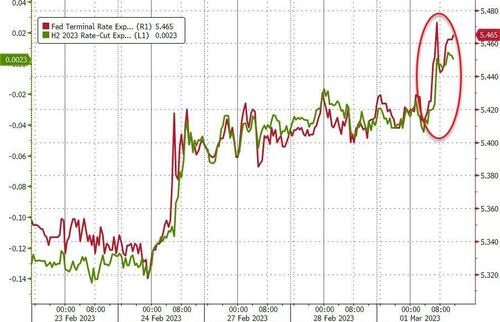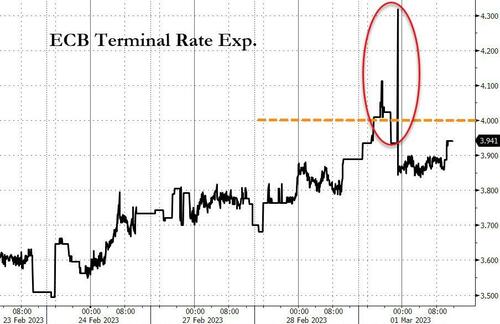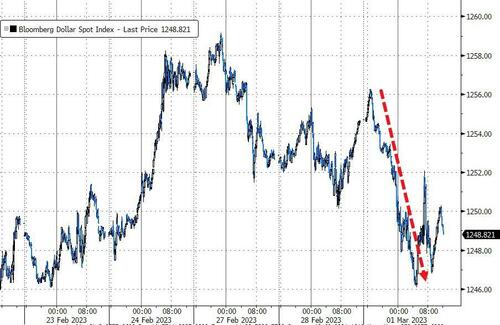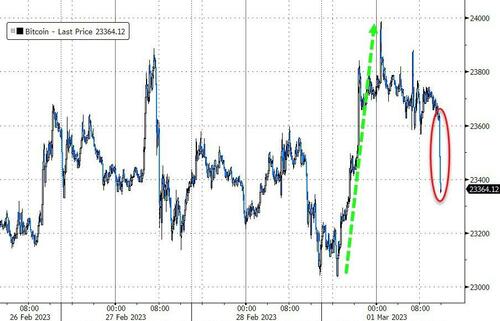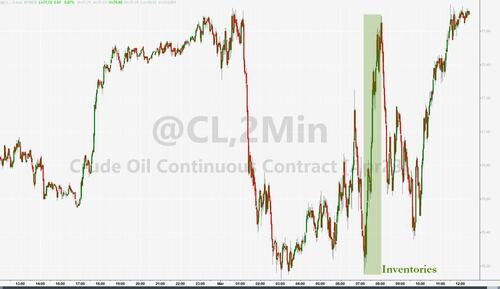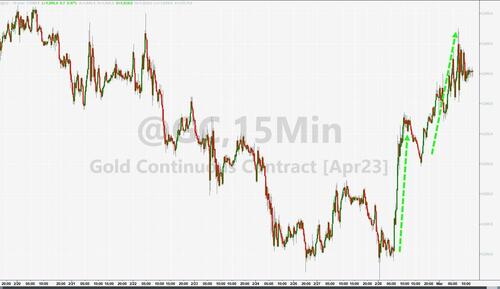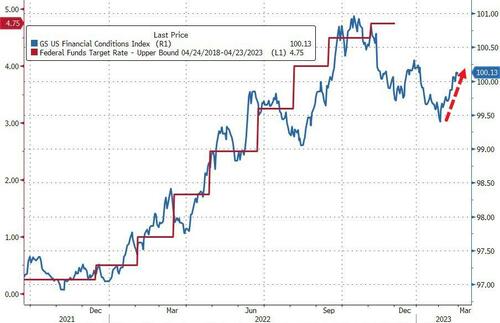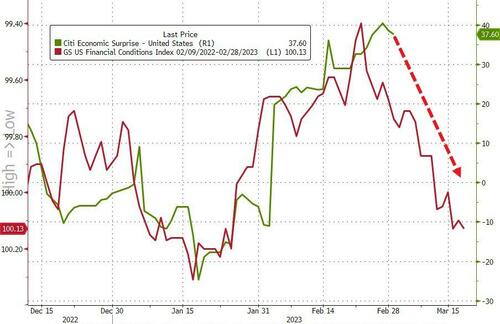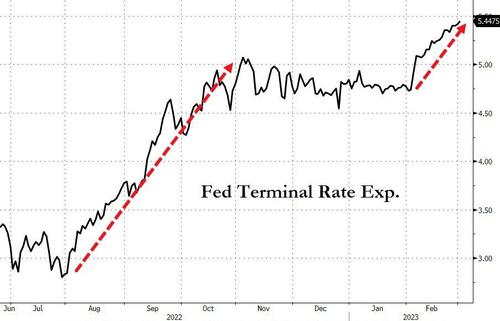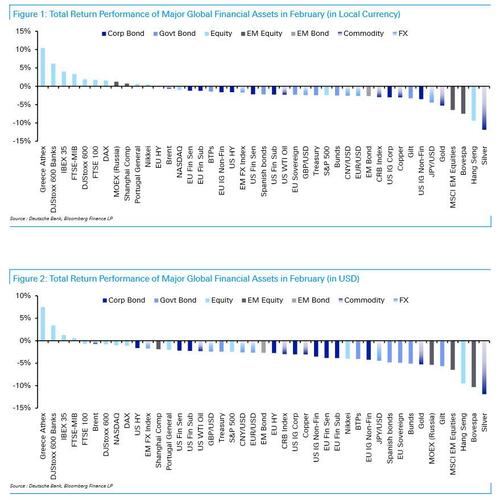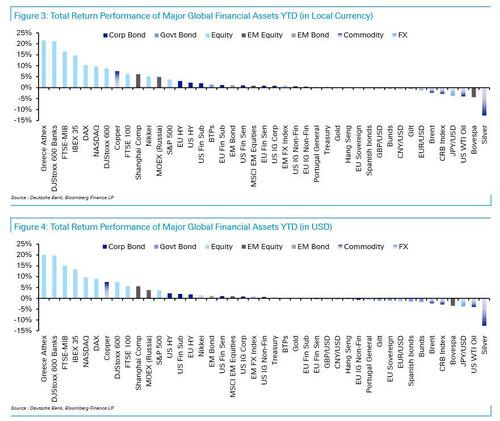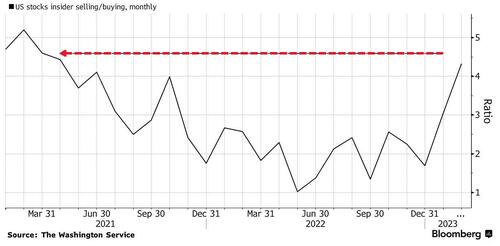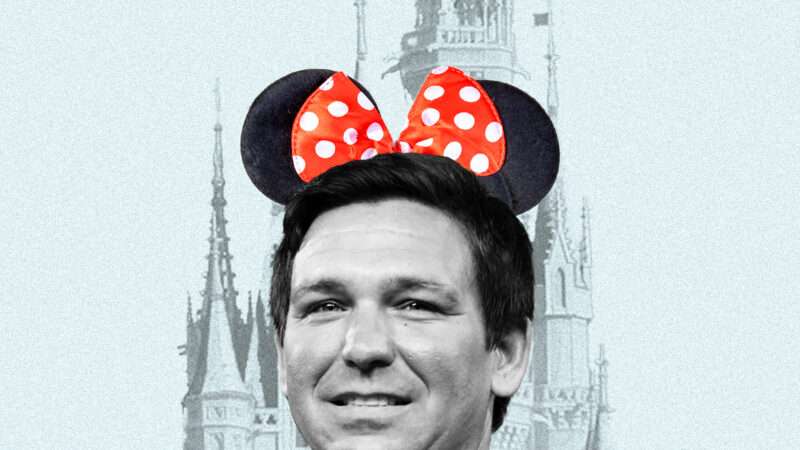Face-Masks & Lab-Leaks No Match For Progressive Ideology
Authored by J.Peder Zane via RealClearPolitics.com,
During much of the COVID pandemic, progressives intimidated, insulted, and sought to censor those who questioned the efficacy of face masks or wondered if the virus might have leaked from a lab in China.
Displaying their trademark belief that they always possess the truth, progressive politicians, activists, and journalists attacked those who opposed mask mandates as enemies of science and smeared lab leak proponents as peddlers of a fringe “conspiracy theory.”
Now their tattered narrative regarding COVID-19 is being ripped apart even more by the insistent foe of ideology – reality. On Sunday we learned that the Department of Energy has concluded that the COVID-19 pandemic probably began with the leak of the virus from a Chinese lab. This comes on the heels of an authoritative new study that found face masks have provided no measurable protection to the public.
In fairness, neither piece of information is the final word on these subjects.
The DOE reportedly has “low confidence” in the classified intelligence reports informing its view; the FBI expressed “moderate confidence” in its 2021 determination that a lab leak likely caused the pandemic.
The mask study’s conclusion – based on a review of many other studies on masks by the well-respected Cochrane Review – was more robust, as its lead author, Oxford’s Tom Jefferson, stated: “There is just no evidence that they make any difference. Full stop.” But other respected experts argue that the study is not definitive.
These developments – along with previous studies questioning the effectiveness of lockdowns – should provoke deep soul-searching for progressives who were as wrong as one can be on matters of profound consequence. They will not, because of the left’s anti-democratic impulses.
To begin, the problem with the progressives’ response to COVID was not that they were mistaken during a time of fog and murk, or even that they used their power to push questionable policies. Such failings are an expression of the human condition. It was, instead, their illiberal assault on the core values of free and open debate that – when allowed to work properly — allow us to identify, address, and overcome those failings.
American democracy has thrived because of its optimistic humility regarding human understanding. We’ve been driven by the recognition that knowledge is ever evolving, that there is always a better way. Putting these ideas into action requires free speech and open inquiry, as well as the belief that good ideas can come from any Horatio Alger quarter, and that the best ones will triumph in the rough and tumble marketplace of ideas.
This approach is necessarily fractious; human beings instinctively resist change and resist making room for others. Indeed, our country has failed when it has turned its back on this hurly-burly freedom in the name of rigid ideologies and beliefs.
Sadly, many of today’s progressives, who control most of the levers of power, largely reject this fact-based tradition.
Embracing an ideology that hinges on the faith that they know best – that they are duty-bound to lead the masses who aren’t equipped to make good decisions – they cast themselves as secular popes who know the truth on every matter.
Because their authority rests on their expertise, progressives are largely incapable of admitting error.
When their policies fall short – Lyndon B. Johnson said his Great Society programs aimed “not only to relieve the symptom of poverty, but to cure it and, above all, to prevent it” – they inevitably blame a lack of resources or resistant people. Give them any intractable issue, from health care to education, and they will insist that they know what works; all that’s holding them back is money, will, and power.
When their failures are more cut and dried, they try to minimize the damage by rewriting history. For example, despite unequivocal proof that Donald Trump did not conspire with Vladimir Putin to steal the 2016 election, they still suggest that he did. In response to these recent COVID revelations, I predict progressives will claim that they did the best they could with the information they had, all the while purging our collective memory of the ways they limited the range of permissible facts and ideas.
My mind has changed about progressives as they have become even more radical in recent years. Once I despaired that Godot would arrive before the scales fell from their eyes. But at least that thought contained a ray of hope. Now I see that they know what’s going on and just don’t care. Like so many figures now on the ash heap of history, they choose ideology over experience every time.
Tyler Durden
Wed, 03/01/2023 – 16:20
via ZeroHedge News https://ift.tt/OZoHhCb Tyler Durden

